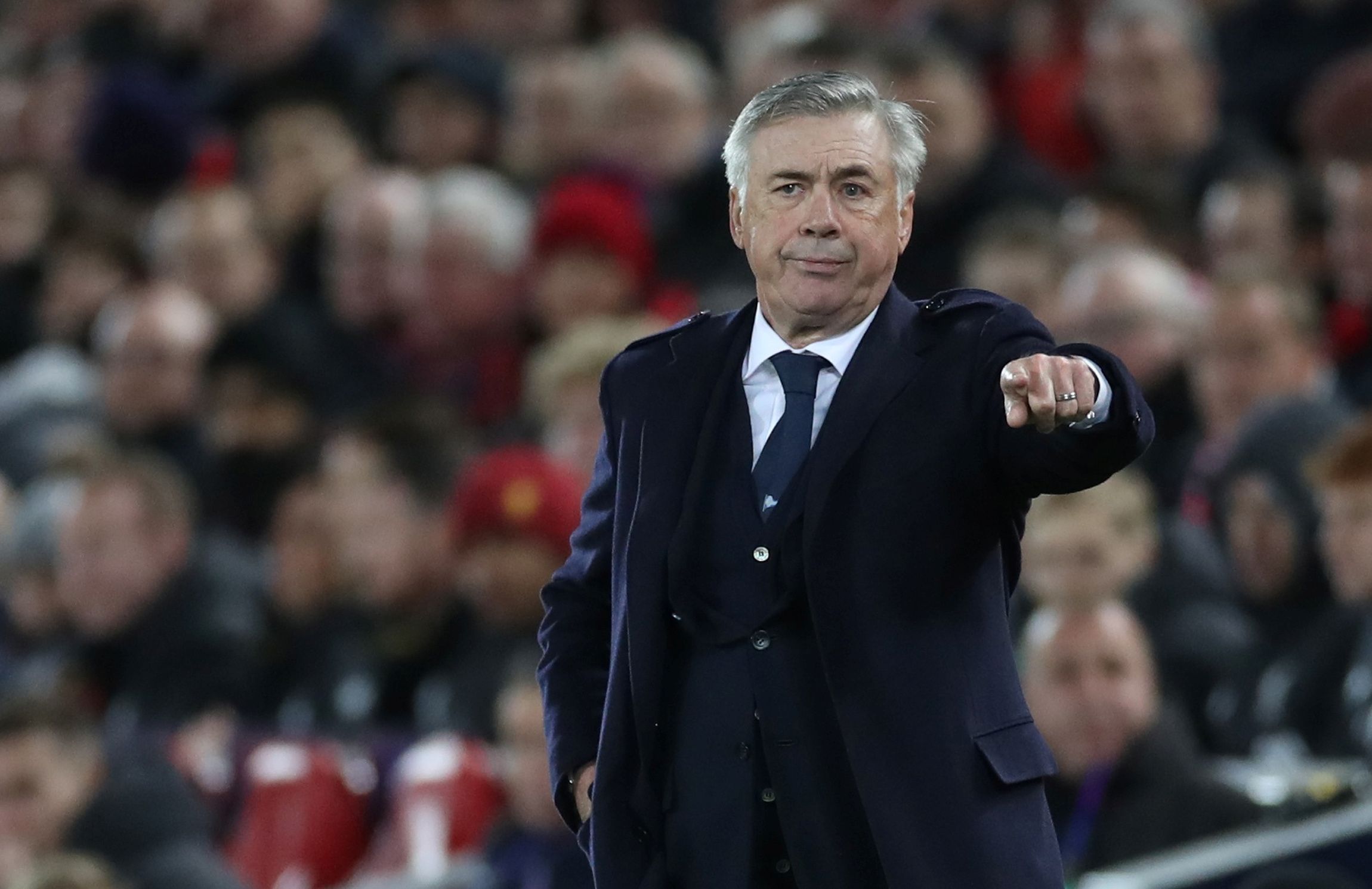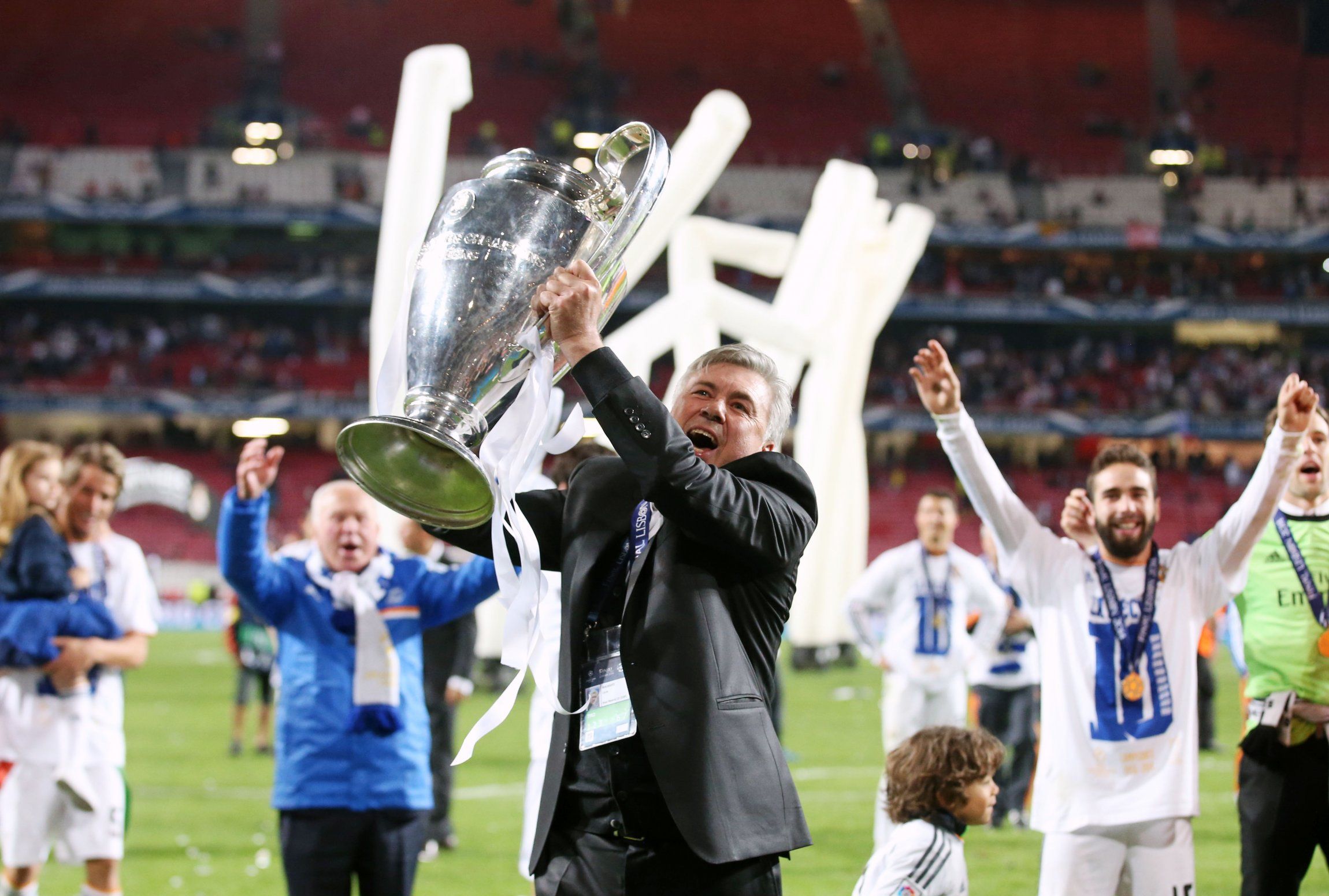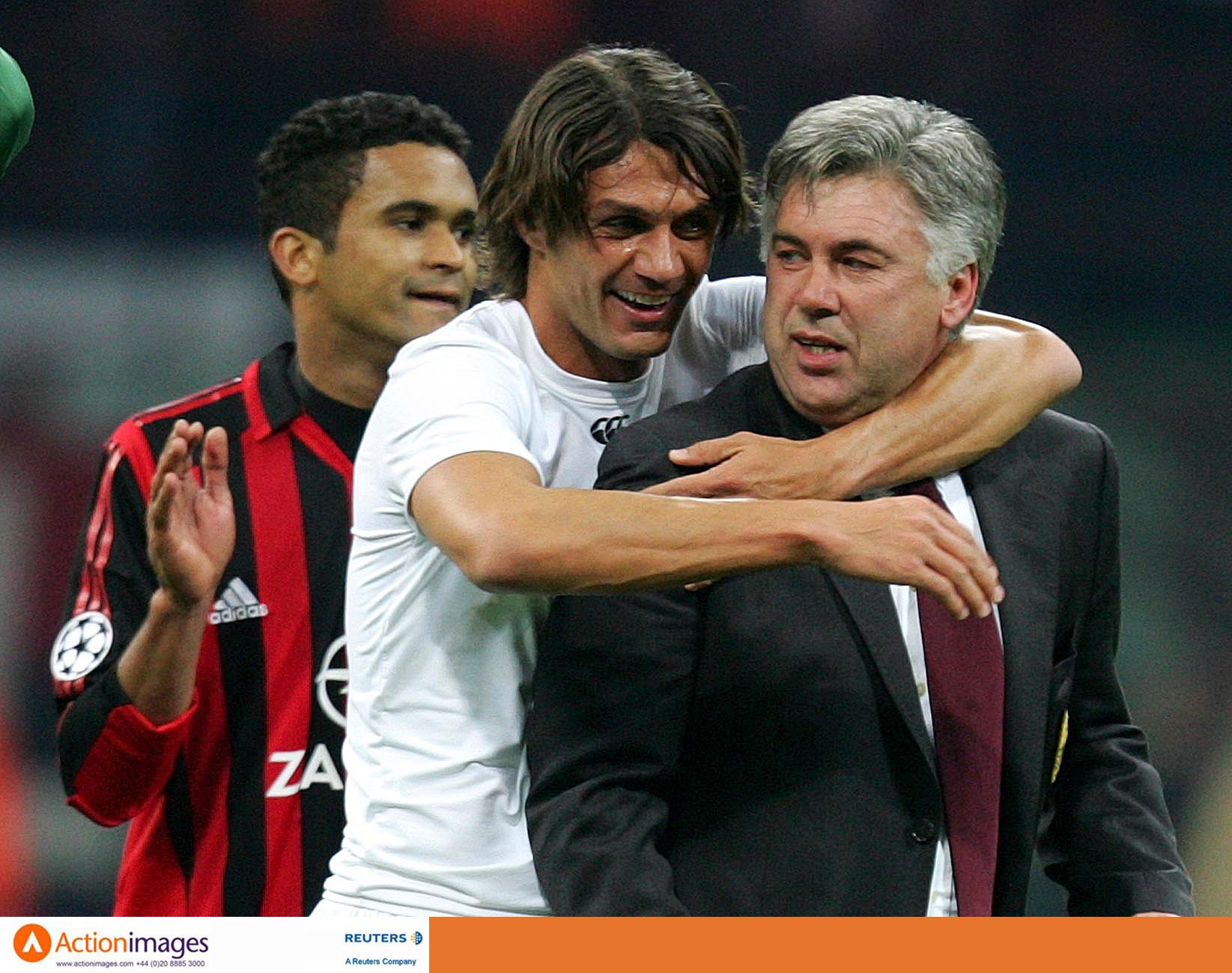When the news broke this week that Carlo Ancelotti had been sacked by Napoli, despite guiding them to the Champions League knockout stages the very same evening, it took less than a nanosecond before numerous sites and social media were linking the veteran Italian coach with the vacancies at Arsenal and Everton.
This was a wholly expected development, of course, given Ancelotti’s track record that has seen him compile a managerial C.V. that only the very elite can equal. In nearly a quarter of a century in the dug-out he has won league titles across four different countries, a feat that is unique and deserving of significant acclaim. He is one of only three managers to win the Champions League a trio of times. He is a perpetual collector of high achievements and even in his final game the 60-year-old added another to the list with Napoli’s progress meaning he is only the second coach to steer six different sides through the Champions League group stages.
Add a cabinet stuffed with other honours into the mix along with a compendium of well-organised, marvellous football teams – not to mention his fluency in English and proven Premier League credentials - and its little wonder that the Gunners and Toffees are reportedly keen to secure his prestigious services. Indeed, they would be crazy to at least not place him under serious consideration.
That, however, is not to say that he is the ideal man for either club. Perhaps he is not even the right man and at Everton in particular that is absolutely the case.
It is always something of a disservice to typecast any manager’s careers into neat tropes and that is especially true of the cosmopolitan and erudite Ancelotti. Even so, when seeking consistent traits that run throughout his long time as a coach two come strongly to the fore, as relevant in Milan as they are in Madrid; from Parma to Paris.
Firstly, the former midfielder manages as he used to play - with a minimum of fuss and pragmatism always trumping unnecessary dramatics. This lends itself to a calm working environment in which his players thrive and more so has led to Ancelotti often being credited – correctly – as one of the best man-managers around. His is a friendly approach and in motivational terms that usually means all carrot and very little stick. We will return to this shortly.
The second constant in Ancelotti’s distinguished employment is that typically he has inherited fantastic sides a touch under the weather. Early into his vocation he took on the reins at Parma, the club where it all began for him as a player in the mid-seventies and here – twenty years later – the Emilians were enjoying a golden era that had them challenging for the Scudetto on an annual basis. It was a high point still fondly recalled in Romagna, a time of Buffon and Cannavaro, Zola and Chiesa. Ancelotti took charge of a sumptuously talented side that had finished a disappointing fifth the previous campaign and in his first season guided them to second.
Juventus came next, with Zidane, Davids and all and then the gloriously gilded Milan set-up of the 2000s where the names roll easily off the tongue. Maldini. Nesta. Pirlo. Kaka. Shevchenko.
At Chelsea the savviest of operators inherited a successful squad jaded by Jose Mourinho’s demands and put his arm around each of them before repeating the trick at Real Madrid. In between these largely triumphant stints there were two years at PSG where he was heavily bankrolled to the tune of bringing in Zlatan Ibrahimovic, Thiago Motta and Thiago Silva to an average league in his first full window.
Later there was a season at Bayern Munich – succeeding Pep Guardiola – and latterly came Napoli and a pattern emerges from all of this which is undeniable.https://www.dailymotion.com/embed/video/x7n0hnm
For while not wishing to diminish the undoubted nous of Carlo Ancelotti – one such example is that it was he who first reimagined Andreas Pirlo as a deep-lying creator – by and large he is a top-end restorer, not a rebuilder. He takes on great teams and makes them great again.
Everton are currently a very long way from being deemed great. Conversely they are a squad in dire need of remodelling and this despite some copious spending in recent years. They are ill-balanced and sorely lacking in genuine quality, as their present league standing starkly illustrates.
If that places doubt on Ancelotti’s suitability we return to his practice of getting the players on-side and content.
Within the fierce confines of Goodison Park it is not a softly-softly approach that is required, as was proven so bombastically last week as Duncan Ferguson roared passionately from the touchlines, demanding unremitting commitment from his players as they out-played Chelsea in a highly entertaining 3-1 win.
An arm around the shoulder doesn’t cut it at Goodison whereas a kick up the backside does and though Evertonains might take umbrage with the following assessment, they have typically shone brightest under sergeant major types such as David Moyes. Ancelotti, though, doesn’t do intensity.
Furthermore, as difficult as it may be for the club’s hierarchy to admit, they are currently a full pay-grade below what Ancelotti does so well. He is a man for the finishing touches.
Everton, you feel, must start all over again.



